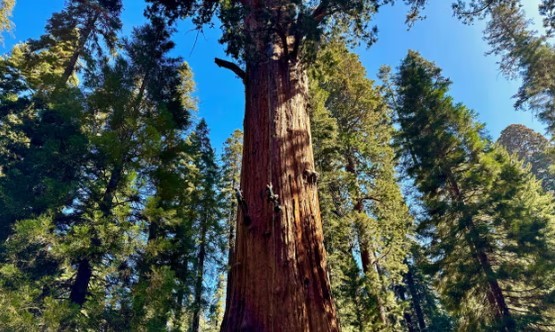
Researchers Discover ‘New Vital Climate Service' Provided by Trees in Emission Reduction
Scientists have found that microbes residing in tree bark are crucial in removing methane from the atmosphere. Methane, a potent greenhouse gas originating from agriculture and fossil fuel combustion, is 28 times more powerful than carbon dioxide, though it has a shorter atmospheric lifespan. This gas has contributed to approximately 30% of global warming since the preindustrial era, with emissions currently increasing at their fastest rate since the 1980s.
The research team from the University of Birmingham, led by Professor Vincent Gauci, published their findings in the journal Nature. They examined methane absorption levels in tropical forests in the Amazon and Panama, temperate broadleaf forests in Wytham Woods in the UK, and boreal coniferous forests in Sweden. The highest absorption levels were observed in tropical forests, likely due to the microbes' ability to thrive in warm, moist environments.
Previously, soil was believed to be the sole terrestrial methane sink, with bacteria in the soil absorbing and breaking down the gas for energy. However, Gauci emphasized that their research revealed "a remarkable new way in which trees provide a vital climate service."
The Global Methane Pledge, introduced at the 2021 Cop26 climate summit, aims to reduce methane emissions by 30% by the decade's end. Gauci noted, "Our results suggest that planting more trees and reducing deforestation must be crucial parts of any strategy toward this goal."
Tree planting has become a key strategy in combating climate change, with the UK government allocating over £500 million for trees and woodlands from 2020 to 2025. However, another study published on Wednesday suggests that countries should consider both the benefits and drawbacks of tree planting, with natural forest regeneration proving more cost-effective in some cases.
Jacob Bukoski, a scientist from Oregon State University's College of Forestry, and his team analyzed data from thousands of reforestation sites in 130 countries for their study published in Nature Climate Change. They found that natural regeneration would be most cost-effective over a 30-year period for 46% of the areas studied, while planting would be more cost-effective for 54%.
"Generally speaking, we can let forests regenerate on their own, which is slow but cheap, or take a more active approach and plant them, which speeds up growth but is more expensive," Bukoski explained. "Our study compares these two approaches across reforestable landscapes in low- and middle-income countries, identifying where natural regeneration or planting is more sensible."
Natural regeneration was more cost-effective in areas such as western Mexico, the Andean region, the southern cone of South America, west and central Africa, India, southern China, Malaysia, and Indonesia. Factors contributing to this included sufficient ecological conditions for tree regrowth, opportunity and implementation costs, and carbon accumulation rates.
Scientists concluded that a global combination of both approaches would be 44% more effective than natural regeneration alone and 39% better than planting alone. "If your objective is to sequester carbon as quickly and as cheaply as possible, the best option is a mix of both naturally regenerating and planted forests," Bukoski said.
While reforestation can significantly offset greenhouse gas emissions, the authors stress that it should complement, not replace, efforts to reduce fossil fuel emissions. The total mitigation potential of reforestation over 30 years would only equate to less than eight months of global greenhouse gas emissions.
The authors also highlight that many factors must be considered alongside carbon when deciding on reforestation strategies, such as impacts on biodiversity, demand for wood products, and non-carbon biophysical effects like water availability.